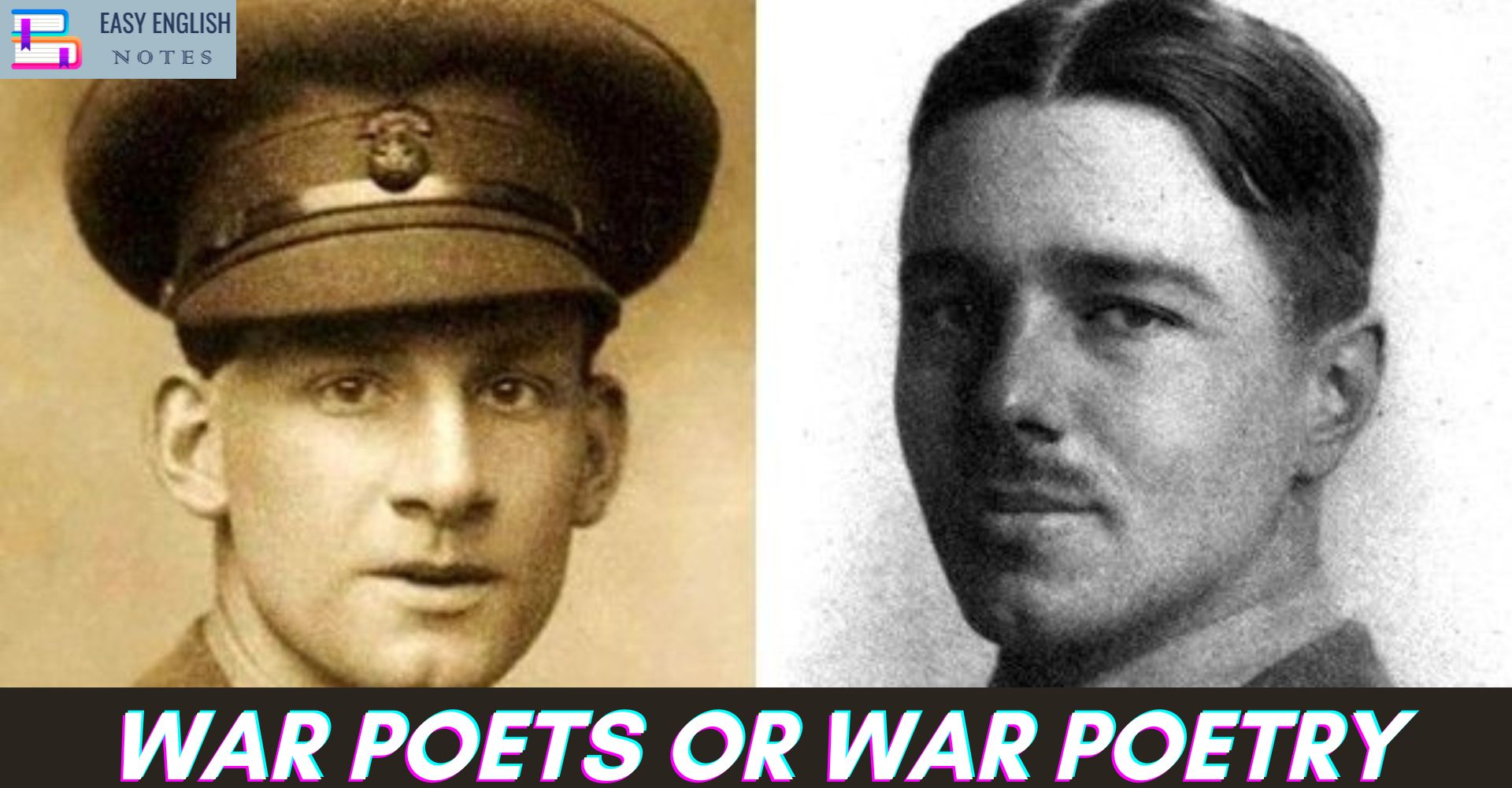The outbreak of war in 1914 stirred many young soldiers to poetry. They tried to express their new found sense of beauty and dearness of the homeland which they might never see again. The years between the two world wars witnessed prolific poetic activity. It was a period when tradition and innovation went side by side. The imagists, symbolists and Surrealists were the innovators. Edward Thomas was the first of the war poets. He served in the Artists Rifles during the war and was killed in action. He came comparatively late to the writing of poetry. He wrote poetry when he was encouraged by Robert Frost. Edward Thomas an original poet. He tries to express modern sensibility in his poetry. While reading his poems, we get the impression that certain chance impressions and sensations have been fitted down. The focus in the poems of Edward Thomas is always on the inner life. The poem entitled “October” clearly illustrates the method of the poet. There is an intensity of vision as well as an intensity of suffering in his poetry. “Cock Crow” is his other important poem. It records the poet’s passing impression in the countryside where forests abound with crows.
W. B. Yeats was the leading figure of the Irish literary renaissance. He is known as the poet of Celtic Revival; some of his works are filled with Celtic mysticism. Yeats’s youthful poems have a youthful grace. They deal with imaginative and ideal love. They are written in a smooth and simple manner. The simplicity of his manner contrasts with the subtlety of mattes. In his early years, Yeats was a poet of Celtic twilight. But his later poetry is more intellectual. It has something of Donne’s metaphysical quality. Yeats is modern because he widened his range of poetry and dealt with certain contemporary experiences. He admitted contemporary problems in his poetry. His important poems are “The second coming”, “Sailing To Byzantium”, “Easter 1916” and “Tower”.
Ezra Pound was an American who settled in England. Many of his best Carly poems are translations or adaptations from an extremely wide range There is no poet of our time with a more magnificent historical imagination than Pound. It is not that he is an exact scholar. He can make blunders in translation. But he imaginatively grasps the poem in a strange tongue wrestles with it and finally brings over its emotional equivalent in English. He makes tentative use of verse using poetry to get close to the shape of a real situation “The Cantos” is the masterpiece of Pound in the field of poetry. This poem is an attempt to create a kind of personal anthology of what Pound regards as the high and noble moments in human culture.
Also Read :
- Compare Hamlet with Macbeth, Othello and other Tragedies
- “The Pardoner’s Tale” is the finest tale of Chaucer
- Prologue to Canterbury Tales – (Short Ques & Ans)
T. S. Eliot Is a great poet of modern age. We find the full development of his genius in poems like, “The Wasteland” and “The Four Quartets”, “The Wasteland” presents the sense of hopeless drift which afflicted the post war generation. It does not merely express the negative sense of hopelessness. It presents an agonised sense that some faith is necessary. He also believes that there is some source of spiritual authority that transcends the historic flux. “The four Quartets” are a sort of philosophical meditation on the relation of time to eternity or of human history to the will of God. Eliot’s “The Love Song of Alfred Prufrock” depicts contemporary human situation.
Robert Graves was one of the outstanding war-poets who described the harsh experiences of war. The main theme of his poetry is resignation, suffering, bitterness and the impassioned return of the soul to dear memories. Robert Graves is baffling in historical context. Graves is all the time pre- occupied with the idea that the world is convalescing after the first world war. In modern poetry, we get the fusion of metaphysical classical and romantic elements. Graves employs metaphysical technique for romantic form. His poetry lacks the social force of Eliot.
W. H. Auden was one of the leading figures in the war years. He described himself as a “Pink liberal”. There was always a religious note in his poetry. Today, Auden is a religious poet and spender is a poet of inner life. Auden had fondness for colloquial language and urban imagery. Spender was a much more lyrical and subjective poet. His verse medium was a free verse. Through this medium, he expresses a painful grapping of the mind. The statement which runs through Auden’s poetry is Christian rather than Marxist.
PLEASE HELP ME TO REACH 1000 SUBSCRIBER ON MY COOKING YT CHANNEL (CLICK HERE)











